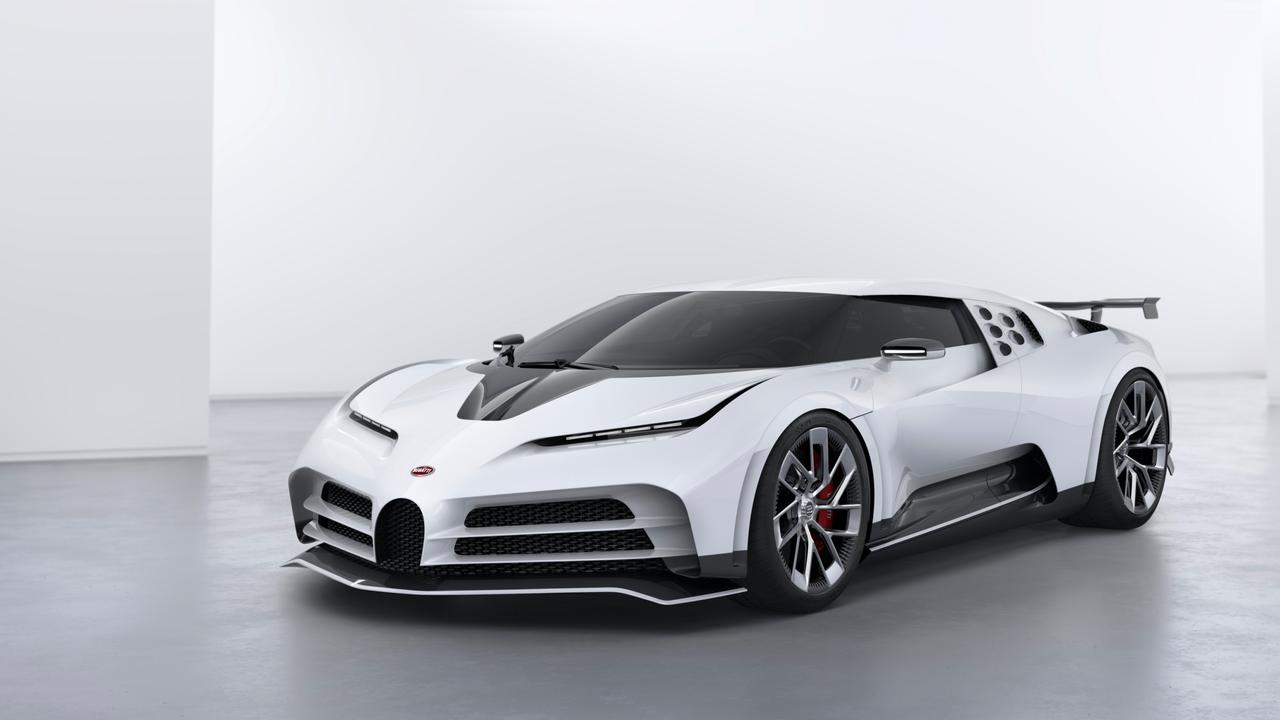Polestar 2 review: electric vehicle presents compelling alternative to luxury brands
This stylish and understated newcomer offers some stiff competition to the established players in the prestige vehicle market.
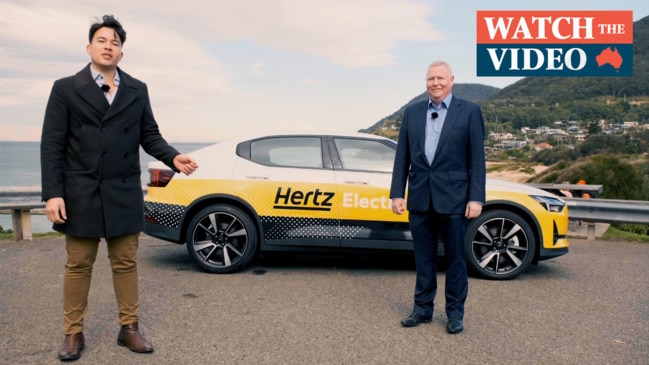
Luxury
Don't miss out on the headlines from Luxury. Followed categories will be added to My News.
The choice is refreshingly simple
Once you’ve decided you want a Polestar, then choosing the one that’s right for you is fairly simple.
The standard model is a shade under $70,000 drive away. If you want a little more range you can bump it up by another 70km for an extra $4500. That will give you a claimed 515km to 551km between charges.
If it’s performance you’re after, an extra $9500 gives you the dual-motor, all-wheel-drive version with a whole lot more grunt. Power jumps from 170kW to 300kW and torque doubles to 660Nm.
Those numbers are good for a claimed 4.7-second sprint to 100km/h, compared with 7.4 seconds for the standard model.
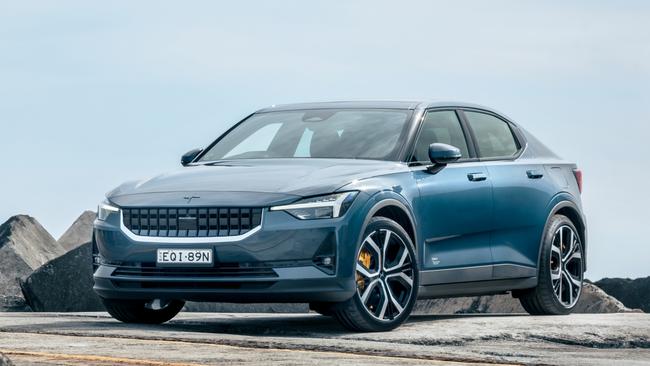
There’s a ‘gansta’ pack
Our test car was fitted with the performance pack, which will set you back another $8000.
It includes 20-inch wheels wrapped in high-performance rubber, drilled and ventilated front discs with gold Brembo four-piston calipers – with matching gold seatbelts – and manually adjustable Ohlins shocks.
The shocks have 22 settings that can be adjusted at home, providing you have a jack, as the rear wheels need to be off the ground to do the adjustment. You can also download a $1600 software upgrade to unleash more performance.
It will boost power to 350kW and torque to 680Nm, cutting the 0-100km/h time to a claimed 4.4 seconds. It includes a launch control feature.
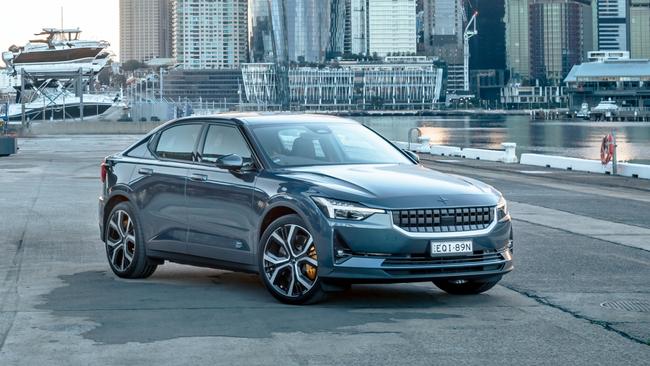
It’s fun to drive
Predictably, all those numbers add up to a whole lot of fun for the person behind the wheel.
Stomp on the accelerator and the Polestar will shove you back into your seat hard as it silently but rapidly builds speed.
It’s a smoother, less brutal experience off the mark than the Tesla performance version, but between 80km/h and 110km/h – highway overtaking speeds – it is seriously impressive. It’s not a blunt instrument either.
Sharp steering, all wheel grip and well-tuned suspension make the Polestar a blast through the corners.
The big brakes do a solid job of hauling in roughly two tonnes of fast-moving metal.
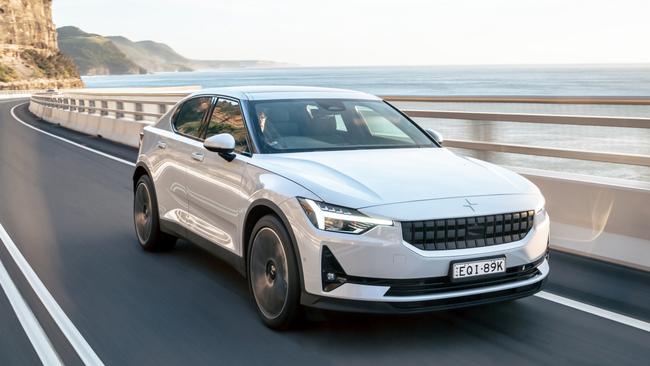
The cabin is Scandinavian chic
The interior design of the Polestar is undeniably Swedish, which is understandable for this Volvo spin-off.
Clean, simple lines gel nicely with the tablet-like centre screen and the digital driver display. The material on the grey cloth seats feels a little like wetsuit material but looks smart and seems hard-wearing.
A compact gear shifter on the centre console is easy to operate, while there’s a lone dial for the audio controls.
The rear seats are cosy bordering on claustrophobic, while rear vision for the driver is very limited.
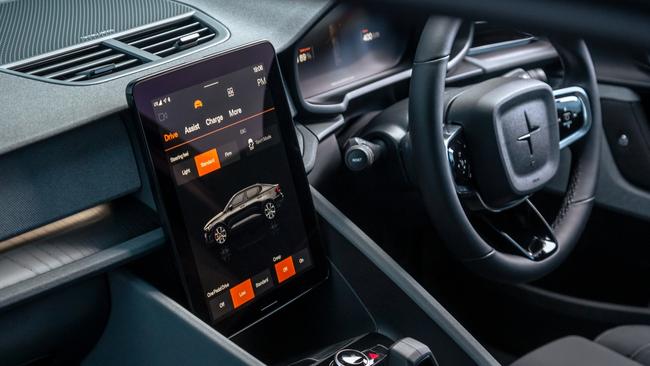
Nils Bohlin would be turning in his grave
Nils was the Volvo engineer who invented the three-point seatbelt, one of the most important safety innovations in motoring history.
It was instrumental in the Volvo brand becoming synonymous with vehicle safety around the globe.
Polestar’s product people have let poor Nils down by charging extra for safety tech that’s standard on a lot of $30,000 hatchbacks.
If you want blind-spot warning, active cruise control and rear cross-traffic alert – on all three models – it will cost you $3400.
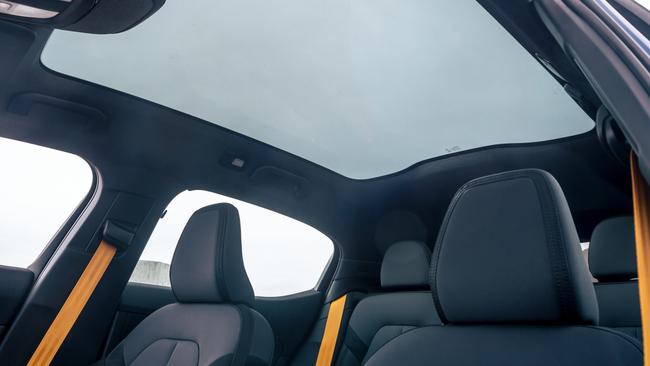
Originally published as Polestar 2 review: electric vehicle presents compelling alternative to luxury brands



